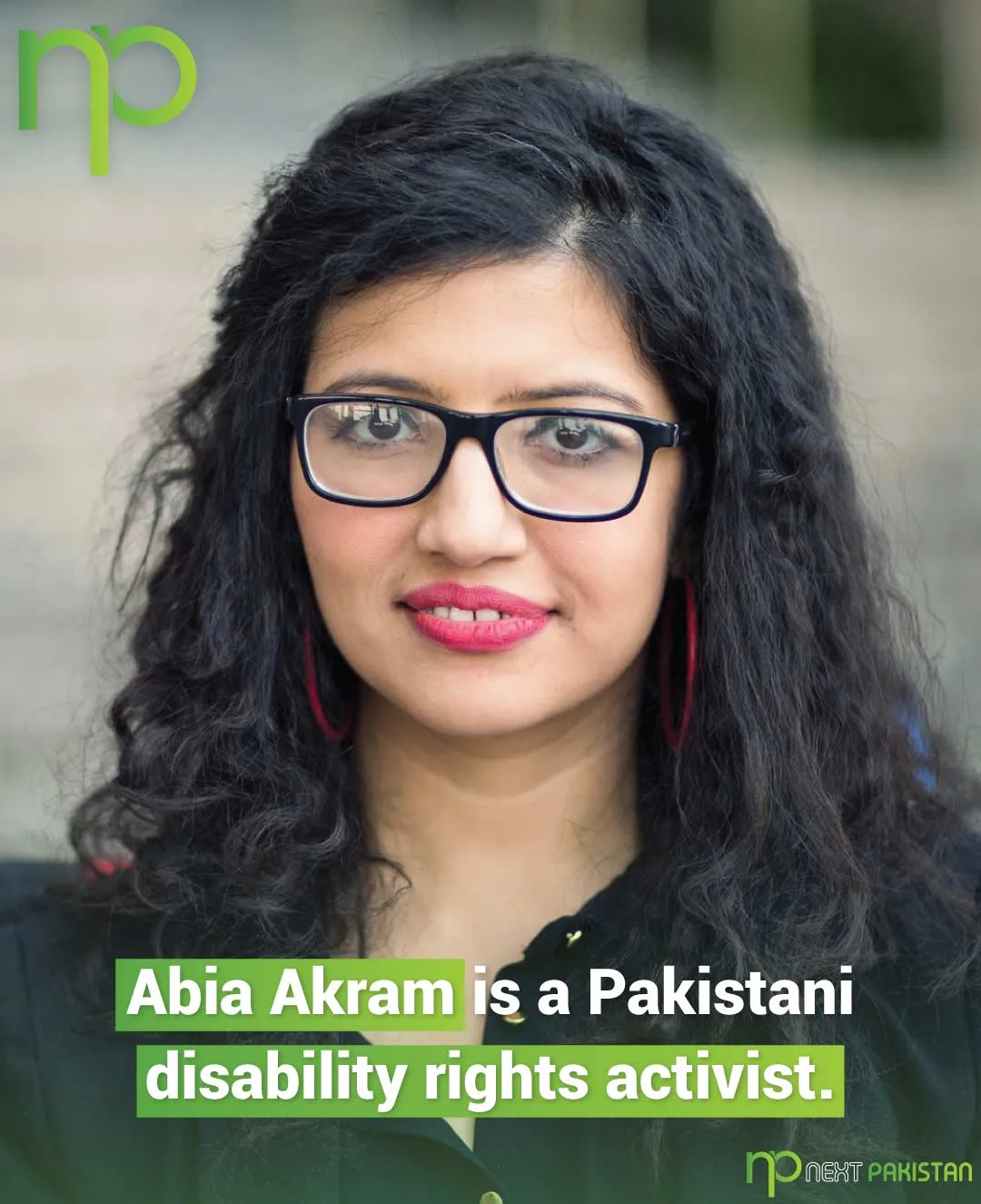
- February 15, 2024
- ubaidah khan
- 0
Born around 1985, Abia Akram is a prominent Pakistani disability rights activist who has made significant contributions to the field. As the founder of the National Forum of Women with Disabilities in Pakistan, she stands at the forefront of the disability rights movement in her country and has gained recognition on a larger scale within Asia and the Pacific.
Her impactful work has not gone unnoticed, as evidenced by her inclusion in the prestigious list of the BBC’s 100 Women in 2021. Abia Akram’s commitment to advocating for the rights of individuals with disabilities has positioned her as a leading figure in the ongoing efforts to promote inclusivity and equality in Pakistan and beyond.
Early Life and Education
Abia Akram, a native of Pakistan, spent her formative years growing up with her parents and siblings in Islamabad. Her journey, however, was shaped by the challenges posed by a genetic form of rickets, necessitating her use of a wheelchair. Despite these challenges, she embarked on her educational path, initially attending an education center catering to individuals with disabilities. Subsequently, she transitioned to a mainstream school, where she not only excelled academically but also became acutely aware of the gaps in knowledge among teachers and the crucial need for systematic teacher training.
Advocacy and Founding the National Forum
In 1997, Abia Akram actively engaged in disabled people’s organizations, recognizing the imperative need for systemic change. Driven by her passion for advocating disability rights, she founded the National Forum of Women with Disabilities, aiming to address the unique challenges faced by women within the disabled community.
Leadership in Disability Task Force
Akram extended her influence by getting involved with Handicap International, establishing the Ageing and Disability Task Force. This coalition, comprising twelve organizations, worked collectively towards mainstreaming concerns related to ageing and disability across humanitarian agencies.
Humanitarian Response and Flood Coordination
During the devastating 2010 Pakistan floods, Abia Akram played a pivotal role as the coordinator for the Ageing and Disability Task Force. Her leadership ensured the integration of disability inclusiveness into the UN Humanitarian Emergency Response in the country, highlighting her commitment to promoting inclusivity during crises.
Abia Akram’s life and work exemplify resilience, advocacy, and a steadfast commitment to ensuring equal rights and opportunities for individuals with disabilities, particularly women, in Pakistan.
Leadership in Disability Rights Movement
Abia Akram has emerged as a prominent figure within the disability rights movement, earning recognition not only in Pakistan but also across Asia and the Pacific. Her pivotal role as the head and founder of the National Forum of Women with Disabilities in Pakistan underscores her commitment to addressing the unique challenges faced by women within the disabled community.
Founding and Coordination Roles
Abia Akram’s influence extends beyond national borders. She is not only the founding member and coordinator of the Special Talent Exchange Program (STEP) but also holds a significant position as the coordinator of the Asia Pacific Women with Disabilities United (APWWDU). These roles demonstrate her dedication to fostering inclusivity and empowerment on a broader scale.
International Advocacy
Akram’s impact transcends regional boundaries as she serves as the chair of the UNICEF Global Partnership for Children with Disabilities. Additionally, she holds the crucial position of Women’s Coordinator for Disabled Peoples’ International in the Asia-Pacific region, emphasizing her commitment to advocating for the rights of individuals with disabilities on the global stage.
Trailblazing Achievements
Abia Akram’s trailblazing achievements include being the first woman from Pakistan and the first woman with disabilities to be nominated as the coordinator of the Commonwealth Young Disabled People’s Forum. This recognition highlights her groundbreaking contributions to the global discourse on disability rights and inclusion.
Abia Akram’s multifaceted leadership roles reflect her dedication to advancing the rights and opportunities of individuals with disabilities on local, regional, and international platforms.
Educational Achievements and Global Recognition
In 2011, Abia Akram achieved a significant milestone by obtaining a Master of Arts in Gender and International Development from the University of Warwick in England, showcasing her commitment to academic excellence and her dedication to understanding the intersections of gender and development on an international scale.
International Research and Scholarship
Abia Akram’s intellectual pursuits extended beyond her formal education, encompassing research work conducted in Japan. This global engagement underlines her commitment to exploring diverse perspectives and enriching her understanding of disability issues in different cultural contexts.
Pioneering Scholarship
Notably, Akram made history as the first woman with a disability from Pakistan to be awarded a Chevening Scholarship. This achievement not only highlights her academic prowess but also signifies her groundbreaking contributions as a trailblazer in education and scholarship.
BBC's 100 Women Recognition
In 2021, Abia Akram’s exceptional contributions to the field of disability rights and her dedication to creating positive change were acknowledged on a global platform. She was named among the BBC’s 100 Women, a prestigious recognition that celebrates the achievements and impact of inspiring women from various fields around the world.
Abia Akram’s academic achievements, research endeavors, and global recognition underscore her dedication to continuous learning and her impactful contributions to the fields of gender, international development, and disability rights.